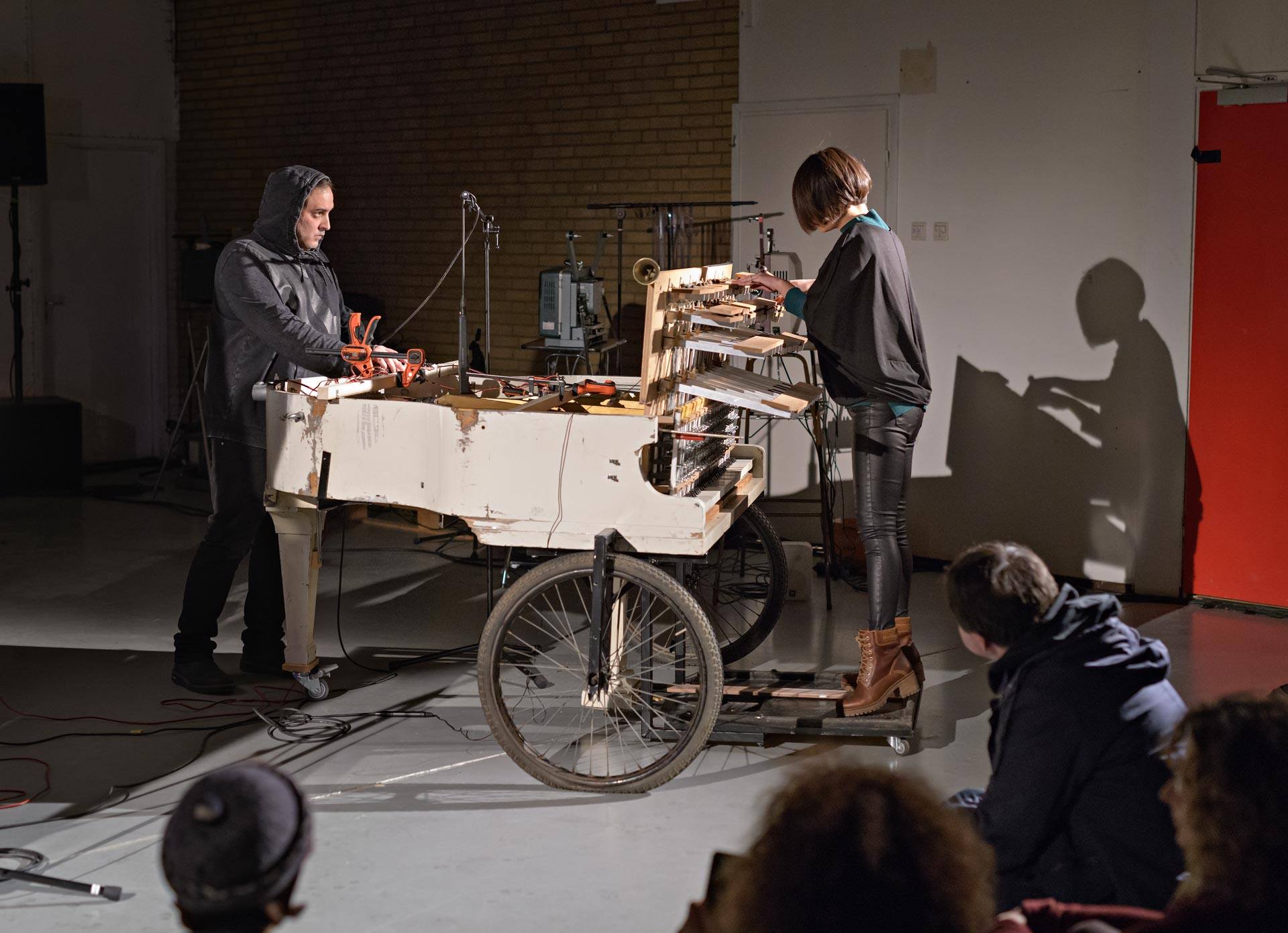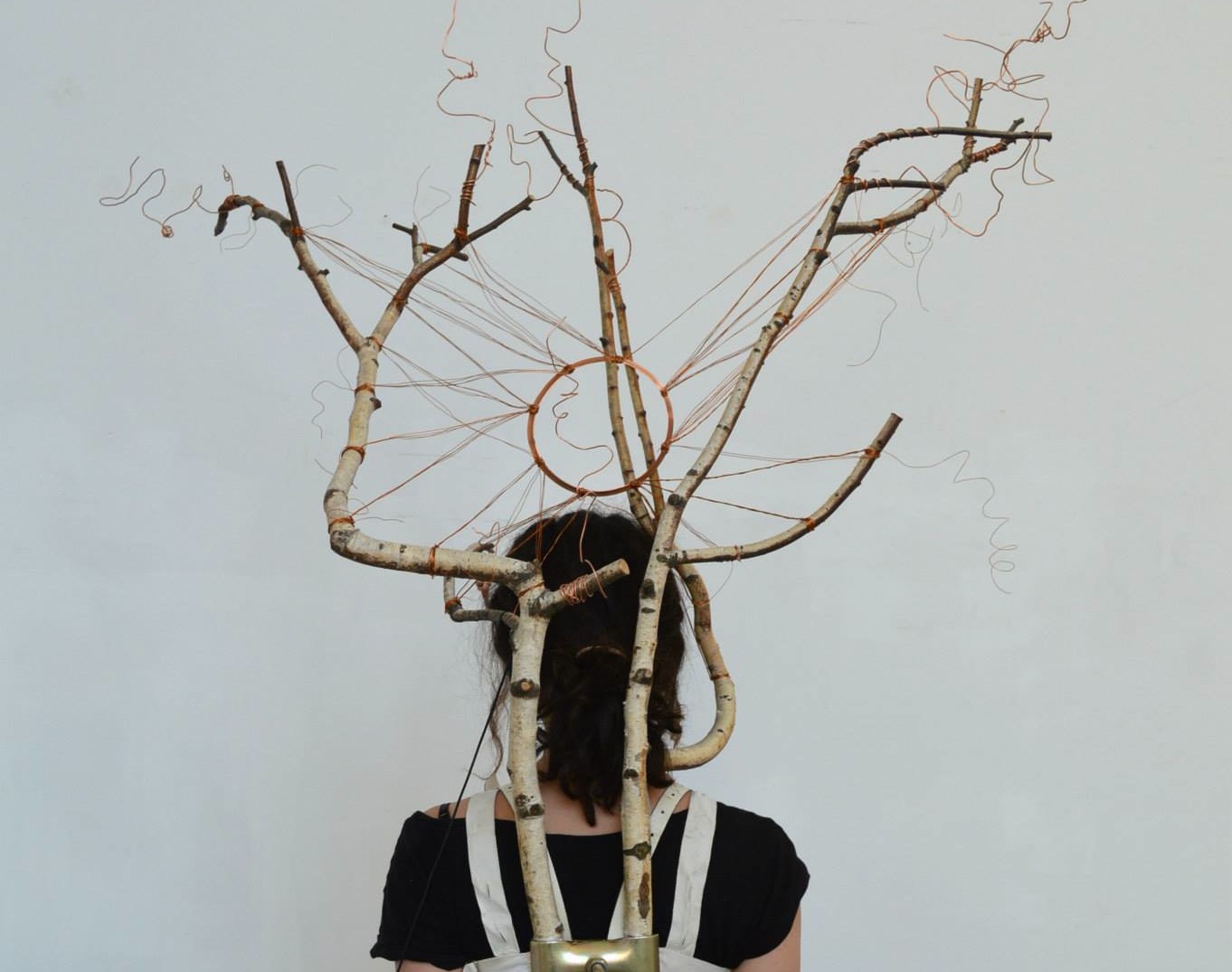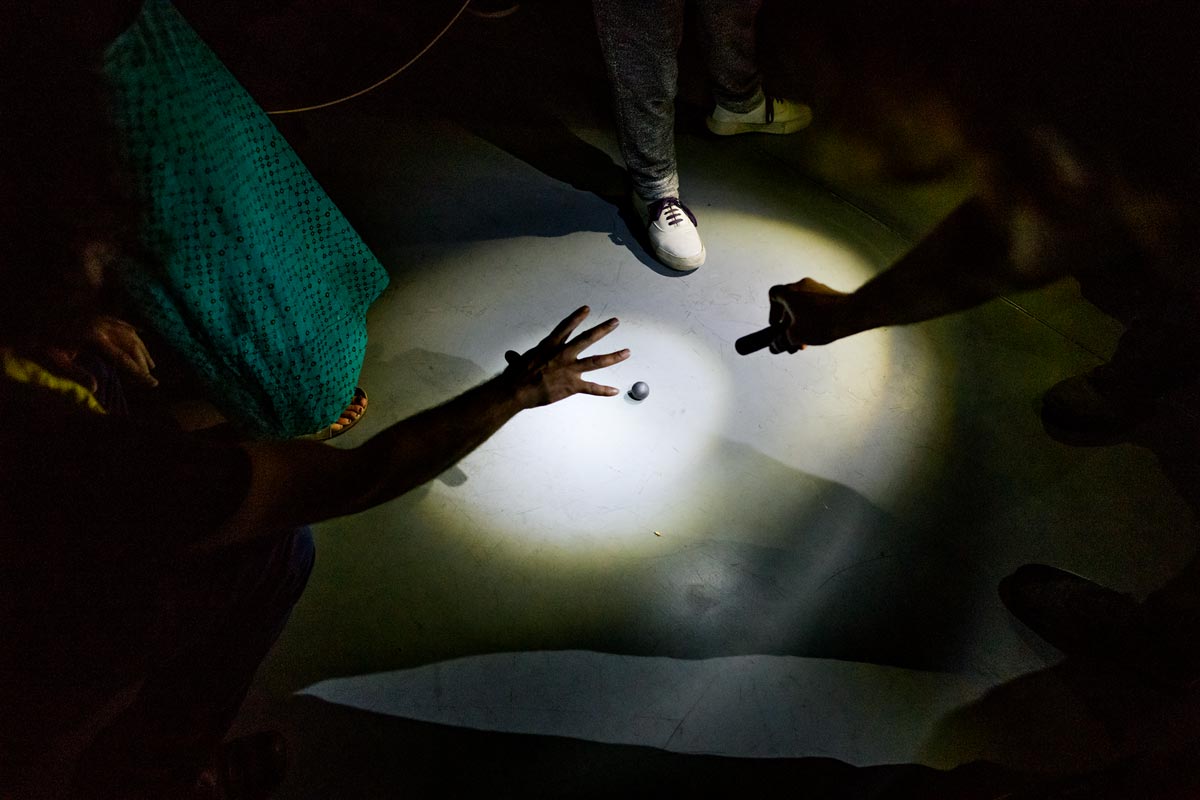The program of iii is set on 3 thematic threads. With “Technological Imaginarium” we reflect on narratives of progress in relation to human imagination, the desire for new experiences and the need to develop responsible approaches to innovation. In “Dance of Agency” we look at affinities between scientific and artistic research, as processes of reciprocal negotiation between humans, machines and the non-human world. In “Meeting at the Margins” we consider the position of our community within society and on the importance of solidarity and cooperation.
Themes
Theme 1: Technological Imaginarium
Steven Johnson in “Wonderland: How Play Made the Modern World” outlines an alternate narrative of progress as driven by a basic human desire to “create and share experiences designed to delight and amaze”. The development of art, science, technology and social innovation all stem from an urge to imagine, invent, create, discover, which is as based in free play as much as it is utilitarian.
At iii we support playful and meaningful labor, encouraging “consumers” to become “inventors” through the example of innovative artistic practice. Understanding technology is not about downloading the latest update. It has to do with how to shape the tools that we use to serve our own individual goals and purposes, in other words : humans must be tool makers before they can be responsible tool users.
Responsible tool creation and use also carries with it an ethics of equity, or “conviviality” as intellectual Ivan Illich describes in his book “Tools for Conviviality”. A convivial tool generates neither slave nor master. Illich lists the bicycle, the telephone and the drill as examples of convivial tools.
We believe that there is little value in making more gadgets, but rather we need to use tools as a gathering point for the creation of better communities where people with all sorts of backgrounds can connect and share meaningful experiences.
We don’t need more apps and more screen time or better home entertainment. We need to rediscover our shared environments and our bodies. Taking inspiration from the fields of anthropology and media archeology, we propose that innovation requires the capacity to zigzag backwards, to explore and even invent alternate branches in the evolution of technology.

Theme 2: Dance of Agency
The historian of science Andrew Pickering coined the term “Dance of Agency” to describe the process through which scientists produce new knowledge in the laboratory. Pickering describes scientists engaging in performative rituals with instruments and the material world. Within this process the material world and the instruments are as much agents as the scientists.
Humans are not at the centre, they are just one of several actors. The process of discovery is then a question of accepting to share control of a process with entities that are different from ourselves, and of being sensitive to what is not expected.
This sensitivity, the capacity to adapt, respond, improvise based on yet uncategorised experiences is also what we do as artists and performers creating and staging works with machines.
It has to do with accepting instability, with presenting on stage experiments as theories and unknowns – falling on our feet whenever we lose our balance.
This way of understanding the relationship between humans, machines and the non-human world could be key to addressing the challenges that humanity is facing as a species.
How do we negotiate with other life forms, with computational systems, mechanical apparatuses, the forces at play in water, wind or electrical currents, with gravitational attraction and chemical bonds?
As artists we can practice it within our own creative research, and we can present it within our public performances for the inspiration of others.

Theme 3: Meeting at the Margins
The spaces from which iii hails are necessarily marginal. It is necessary for us to remain at the margins, so that we can offer a fresh view to the communities that we enter into contact with as “professional outsiders”. At iii we work rigorously as experienced and multi-talented professionals, although there is not a clearly defined market for our products nor an institute to offer us a salary. Entrepreneurship is interesting as an invitation to take responsibility and be proactive. The founders of iii came together because we did not fit in other places. We come from all over the world. We work at the edge of town, many of us living on temporary residency permits and on less than a living wage.
The artist as a bohemian is a cliché that serves to perpetuate inequality, as Astra Taylor argues forcefully in her book subtitled “Taking Back Culture in The Digital Age”. We are invited into city centers for festivals organised to surprise citizens with something new, and for a short moment we are the centre of attention. The margins are where things get exciting. We make our vulnerabilities into a source of compassion and solidarity. At the margins we practice Rituals of Cooperation, in the tradition of worker’s cooperatives and mutual aid societies.
Each member of iii has a different background and brings something else to the table. Some have left behind more hierarchical and restrictive cultures, others are working to shed an ingrained and exhausting consumer mentality. At the margins we practice equality and self-governance, we invite others to come and experience, to see another way of working, organising, creating and sharing.
